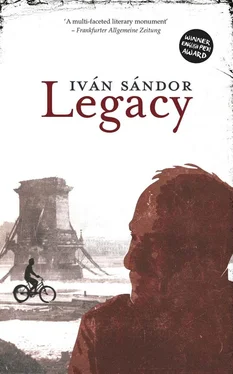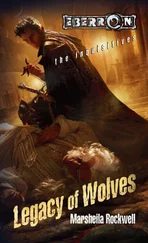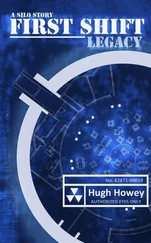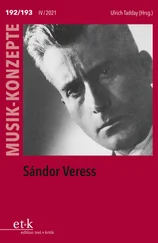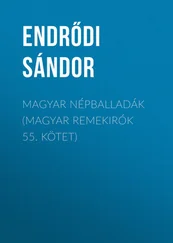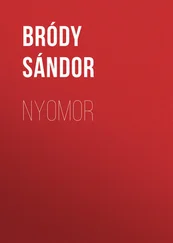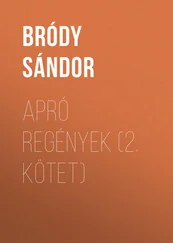Once again they are burying people in the yard.
Once again family members are standing beside a freshly dug pit. Gyuri again sings the Kaddish, but this time they must have found it harder to assemble ten men, as I can also see two boys among them. Again I watch from the balcony as wives, husbands, children and parents throw a handful of soil into the pit.
They are also carrying out a burial in the yard of the house next door, the other side of the wall. They, too, lower a corpse wrapped in sacking into a freshly dug grave. There, too, there are people standing around, making signs of the cross and murmuring prayers — I assume the Lord’s Prayer. I learned that; I could recite it, too. They look up and listen to what Gyuri is singing, and the sound of the Kaddish rises towards heaven.
There are others on the balcony. A member of the team keeping watch on the gate comes, and he says that the fighting is now in Dráva Street. German reinforcements have arrived at the Comedy Theatre; it is said that an artillery battery of the Hungarian Army has also moved in as well as an Arrow Cross stormtrooper unit. The biggest ruckus will be here in Pannónia Street, says a man who has escaped from a forced-labour brigade. It’s a good time to go down into the cellar.
The warden is informed that only one day’s drinking water is left.
There is shooting in the streets, and no one will volunteer to take buckets to Ernő Hollán Street, parallel with this but two streets nearer the river, where drinking water can be drawn from a tank.
The physicist, chewing a crust of bread, invites me to play a game of chess in the bathroom. I sit on the lavatory seat, he on the rim of the bath. If either of us has things to do we’ll go out then come back and resume the chess.
There is now very little water left in the buckets even to flush the toilets.
I opt for a Spanish opening. I get entangled in the moves. We’ll analyse it later, says the physicist. Let’s just play this game out. Are you able to see that I’m going to lose? It’s pretty obvious, he says. He turns to the warden, who has come in in the meantime. The end is already apparent at the start, Józsi. That’s how it is and not just in chess.
If you can see the situation so far in advance why did you not say so in time? says the warden.
I did, only the idiots carried on blindly. Like I said, they are blind.
So that makes me an idiot and blind as well?
As far as being an idiot goes, yes, Józsi, but blind you aren’t. It could never be said of you that you don’t see what is before your eyes. Just don’t forget what you see.
I move one of my knights. Not bad, says the physicist. We’ll analyse that later. Given your position, that was the best move possible — not that it will help you, of course, but, given that you have closed the way for most of your pieces, it was a good move.
I won’t forget, says the warden. I was only worried about Klári. She is taking on too much.
There’s no need to be worried about Klári. I’ve known her longer than you. She’s very tenacious, more so than you even.
I like their way of talking. I think I understand. I try to pay attention to them, although it’s hard enough concentrating on the chess, but at least this takes the edge off my hunger. I’m thirsty as well, having had nothing to drink since this morning.
It’s good if you can see positions that other people don’t see let alone remember. All those many blind people who watch every last thing but see nothing and don’t remember anything.
I can see from his expression that he excuses me my silence. It’s good to hear the warden say, You know what, Laci, you’ve missed your calling. You should have chosen to be a priest. Nonsense, the physicist gesticulates. He moves his queen and announces, Check!
Bombs are now falling without any howling from the sirens.
Light bombs, says the warden. The most they will do is punch a hole in the roof, and the return fire now is mostly shooting submachine guns into the air. There’s no need to go down to the cellar.
I slip a pawn in front of the attacking queen.
What I don’t understand is how it could have happened, says the warden.
That’s what I’m spelling out, says the physicist, slapping the warden on the back. You should always keep your eye on the previous error.
A woman comes in and announces that she saw from the window that Arrow Crossers were leading four men with yellow stars on their coats towards the Danube.
People shouldn’t go outside for water with yellow stars on their coats, says the physicist. There are no volunteers so far, says the warden.
Units of the German 13th Panzer Division Feldherrnhalle withdraw from Újpest. The fighting continues at the railway embankment along Mexikói Road in Zugló. In City Park the 2nd Company of the Budapest Police Assault Battalion retook the building of the Industrial Hall. Fighting commenced in sewers under the districts of the city centre. German troops are retreating factory to factory from Lehel Street next to the railway lines out of the Western Station. Feldherrnhalle units are still holding the Dagály Street — Aréna Road line along the Outer Circle.
Vera comes into the bathroom and watches the chess match.
‘Artillery ammunition has given out; ammunition for the infantry may only be issued on condition that it is only to be fired sparingly on orders. Fuel has given out, the situation of the wounded is catastrophic,’ the Joint German — Hungarian Army Command HQ reports.
The Germans blow up Miklós Horthy Bridge and, at night, the Franz Josef Bridge over the Danube. 13
Do you reckon the big mistake was on 19 March? the warden asks the physicist. The fact that the Germans were allowed to enter Hungary without a single shot being fired.
By that stage it was bound to happen.
Vera whispers in my ear that she has a raging thirst. The man from the guard on the gate who earlier said that fighting was going on by Dráva Street comes in again. Bursts of submachine-gun fire can now be heard from the bank of the Danube, he reports. You think we can’t hear? the warden bawls at him without getting up from the rim of the bath. I had not heard him yell like that before. Vera runs out of the bathroom. The Russians can’t yet be at Dráva Street, the warden says to the guard. The shooting would sound different. You’ve not been on the frontline, that’s for sure. I know these things better than you.
By that stage it was bound to happen, the physicist reiterates.
So was the mistake entering the war then?
Of course it was, Józsi, of course, the physicist says, but that, too, was bound to happen.
Could we have stayed out?
Yes, of course, Józsi, says the physicist. But then before that the idiots had committed themselves to Hitler.
Hitler reannexed the territories Hungary lost after the First World War — Transylvania, the Felvidék in the north, Baka, the Baranya Triangle and Medjumure in Serbia …
Yes, of course, the physicist is starting to gesticulate, but those idiots didn’t have the faintest idea of the price that would have to be paid for that. Well, this is the price!
But once the Trianon Peace Treaty was signed there was no other choice …
Yes, of course, that’s how the beginning and end meet, Józsi, that’s what I’ve been saying. The first mistake leads to all the other irreversible mistakes.
I don’t follow …
Look, Józsi, the Trianon Treaty was an appallingly unjust award. After that two paths lay open: either prove to the British, the Americans and French that we would try to be a peaceful, democratic country and over time show we deserved to have the faulty decisions alleviated and corrected — which is what István Bethlen wanted — or the second route was war. There was no third way. The idiots chose to lick Hitler’s arse … Understood?
Читать дальше
